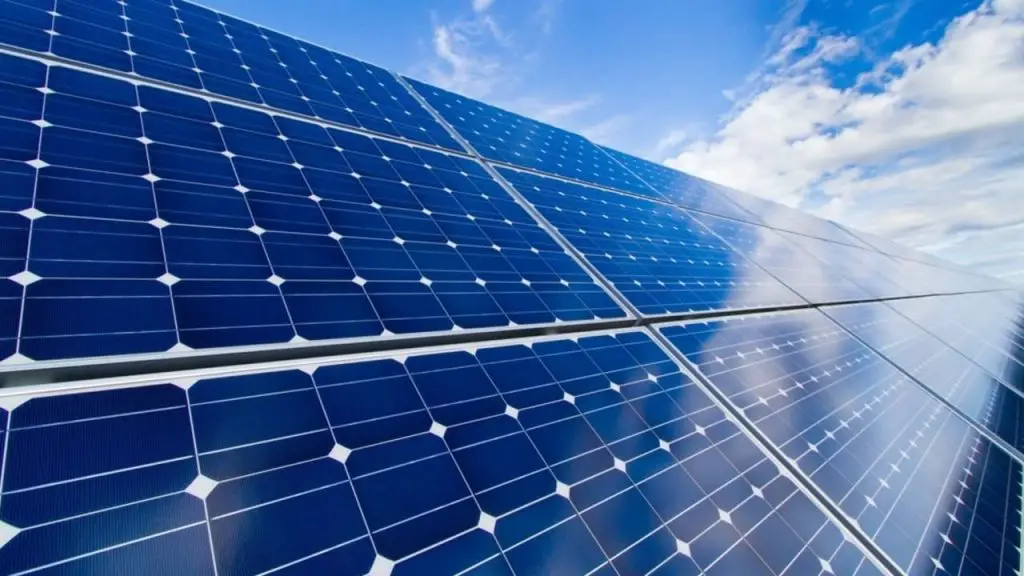Are you considering investing in solar power, but aren’t sure what it entails? Well, the truth is that there are a lot of components that go into having a working solar system.
One of the major questions people often have when looking into this option for energy production is, “How much does a solar panel weight?”
It’s understandable to be inquisitive about this element since your roof structure must contain enough strength to support the panels and installation will require lifting and securing them in place.
In this blog post, we’ll explore the average weight ranges associated with different types of solar panels so you can confidently plan ahead for your own unique setup!
What Is A Solar Panel?
A solar panel is an amazing piece of technology, allowing us to capture the sun’s energy and convert it into usable electricity.
Although they are relatively new to many households and businesses, they have already been proven to be a clean, reliable, and cost-effective way of generating power on our planet.
Solar panels are composed of a number of photovoltaic cells connected together with wiring, which work by absorbing the sunlight’s rays and converting them into direct current electricity.
With efficiency rates continuing to improve, the costs associated with installing them becoming more affordable, and governments incentivizing their adoption, solar panels represent a great opportunity for those looking for an environmentally friendly source of power.
How Much Does A Solar Panel Weight?

Solar panels have come a long way since their first iteration in the 19th century; modern panels are far more efficient, reliable, and lightweight.
The typical weight for a single panel ranges from as low as 35 lbs to upwards of 50 lbs. This makes it easy for homeowners to install their own solar array without hiring a professional to lift the heavy panels.
For larger-scale installations, structural supports are utilized to manage heavier loads and balance out-of-plumb installations with ease.
The modular and lightweight design of solar panels ensures that anyone — from the novice homeowner with basic tools or the experienced contractor with specialized equipment — can start producing energy faster, easier, and cheaper than ever before!
How Many Solar Panels Power A House?
Owning a solar-powered home is becoming an increasingly popular choice for those looking to spend their money more responsibly. But the question remains; how many solar panels does one need to power their home?
The number of solar panels needed to power a house will depend on the size and usage of the house.
An average U.S. home requires several high-efficiency panels and batteries just to keep up with its electricity needs.
This can range anywhere from 6-9 solar panels depending on variables such as the average yearly sunlight exposure, the size of the system installed, and if you plan on storing energy in batteries or not.
In addition to powering their home with solar energy, many homeowners have chosen to install a system big enough that they would be able to sell back excess energy to their local utility company.
No matter what you decide, having access to sustainable energy like solar makes taking control of your environmental footprint easier than ever before!
Benefits Of Using Solar Panels
Here are some of the benefits of solar panels:
Cost Savings
One of the most significant benefits of using solar panels is cost savings.
Installing a solar panel system can save you money on your energy bills, as well as provide financial incentives from various sources, such as state and federal tax credits.
Environmentally Friendly
Solar energy is a renewable resource, meaning it will never run out. It does not produce pollutants or carbon emissions and does not rely on finite resources such as gas and coal to generate energy, making solar energy a clean source of electricity.
Durability
Solar panels are designed to last for 20-25 years, so if you invest in installing a system, you can expect to reap the rewards for a long time.
Easy Installation
Solar panels are relatively easy and quick to install, with most systems taking as little as two days to set up and connect to your electrical grid.
Increased Property Value
Installing solar panels on your home or property adds value to it.
Solar panels have become more popular in recent years, making them a sought-after feature for potential buyers.
Low Maintenance
Once the system is installed, there is very little maintenance involved and no moving parts to service or replace, so you can rest easy knowing that your investment will keep running smoothly for many years to come.
Energy Independence
Solar energy allows you to generate your own electricity, making it an excellent choice for people who want the security and peace of mind that comes with energy independence.
Job Creation
The installation of solar panels creates jobs in many sectors, including engineering, manufacturing, construction, and service.
This is especially beneficial to local economies, as it keeps money in the community.
Reduces Stress On Existing Energy Sources
With more people using solar energy, there is less reliance on traditional sources of electricity such as coal and gas, which helps reduce pollution and prevent over-dependence on these finite resources.
There are many benefits to using solar panels, and these are just a few of the most notable ones. Investing in a solar panel system can help you save money, reduce pollution and be more energy-independent.
Conclusion
Solar panels are a great way to save money on your energy bill, and they’re also good for the environment.
Installing them yourself is a relatively simple process, as long as you have some basic carpentry skills.
With a little time and effort, you can soon be generating your own electricity and doing your part to reduce greenhouse gas emissions.
Thanks for reading! We hope this article has helped you learn how to install a solar panel on a roof. If you have any questions or comments, please leave them below.
Latest Posts:



